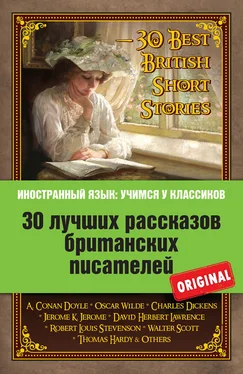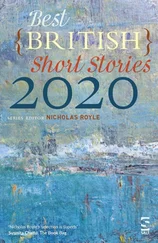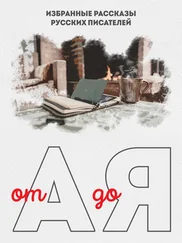Instinctively I raised my hand to my throat, and as I touched it I cried out in pain. The men crowded round to look, some stooping down from their saddles; and again there came the calm voice of the young officer, ‘A dog, as I said. If aught else were said we should only be laughed at.’
I was then mounted behind a trooper, and we rode on into the suburbs of Munich. Here we came across a stray carriage into which I was lifted, and it was driven off to the Quatre Saisons – the young officer accompanying me, whilst a trooper followed with his horse, and the others rode off to their barracks.
When we arrived, Herr Delbruck rushed so quickly down the steps to meet me, that it was apparent he had been watching within. Taking me by both hands he solicitously led me in. The officer saluted me and was turning to withdraw, when I recognized his purpose and insisted that he should come to my rooms. Over a glass of wine I warmly thanked him and his brave comrades for saving me. He replied simply that he was more than glad, and that Herr Delbruck had at the first taken steps to make all the searching party pleased; at which ambiguous utterance the maitre d’hotel smiled, while the officer plead-duty and withdrew.
‘But Herr Delbruck,’ I enquired, ‘how and why was it that the soldiers searched for me?’
He shrugged his shoulders, as if in depreciation of his own deed, as he replied, ‘I was so fortunate as to obtain leave from the commander of the regiment in which I serve, to ask for volunteers.’
‘But how did you know I was lost?’ I asked.
‘The driver came hither with the remains of his carriage, which had been upset when the horses ran away.’
‘But surely you would not send a search party of soldiers merely on this account?’
‘Oh, no!’ he answered, ‘but even before the coachman arrived, I had this telegram from the Boyar whose guest you are,’ and he took from his pocket a telegram which he handed to me, and I read:
Bistritz.
Be careful of my guest – his safety is most precious to me. Should aught happen to him, or if he be missed, spare nothing to find him and ensure his safety. He is English and therefore adventurous. There are often dangers from snow and wolves and night. Lose not a moment if you suspect harm to him. I answer your zeal with my fortune.
Dracula.
As I held the telegram in my hand, the room seemed to whirl around me, and if the attentive maitre d’hotel had not caught me, I think I should have fallen. There was something so strange in all this, something so weird and impossible to imagine, that there grew on me a sense of my being in some way the sport of opposite forces – the mere vague idea of which seemed in a way to paralyze me. I was certainly under some form of mysterious protection. From a distant country had come, in the very nick of time, a message that took me out of the danger of the snow sleep and the jaws of the wolf.
Oscar Wilde
The Remarkable Rocket
The King’s son was going to be married, so there were general rejoicings. He had waited a whole year for his bride, and at last she had arrived. She was a Russian Princess, and had driven all the way from Finland in a sledge drawn by six reindeer. The sledge was shaped like a great golden swan, and between the swan’s wings lay the little Princess herself. Her long ermine-cloak reached right down to her feet, on her head was a tiny cap of silver tissue, and she was as pale as the Snow Palace in which she had always lived. So pale was she that as she drove through the streets all the people wondered. ‘She is like a white rose!’ they cried, and they threw down flowers on her from the balconies.
At the gate of the Castle the Prince was waiting to receive her. He had dreamy violet eyes, and his hair was like fine gold. When he saw her he sank upon one knee, and kissed her hand.
‘Your picture was beautiful,’ he murmured, ‘but you are more beautiful than your picture;’ and the little Princess blushed.
‘She was like a white rose before,’ said a young Page to his neighbour, ‘but she is like a red rose now;’ and the whole Court was delighted.
For the next three days everybody went about saying, ‘White rose, Red rose, Red rose, White rose;’ and the King gave orders that the Page’s salary was to be doubled. As he received no salary at all this was not of much use to him, but it was considered a great honour, and was duly published in the Court Gazette.
When the three days were over the marriage was celebrated. It was a magnificent ceremony, and the bride and bridegroom walked hand in hand under a canopy of purple velvet embroidered with little pearls. Then there was a State Banquet, which lasted for five hours. The Prince and Princess sat at the top of the Great Hall and drank out of a cup of clear crystal. Only true lovers could drink out of this cup, for if false lips touched it, it grew grey and dull and cloudy.
‘It’s quite clear that they love each other,’ said the little Page, ‘as clear as crystal!’ and the King doubled his salary a second time.
‘What an honour!’ cried all the courtiers.
After the banquet there was to be a Ball. The bride and bridegroom were to dance the Rose-dance together, and the King had promised to play the flute. He played very badly, but no one had ever dared to tell him so, because he was the King. Indeed, he knew only two airs, and was never quite certain which one he was playing; but it made no matter, for, whatever he did, everybody cried out, ‘Charming! charming!’
The last item on the programme was a grand display of fireworks, to be let off exactly at midnight. The little Princess had never seen a firework in her life, so the King had given orders that the Royal Pyrotechnist should be in attendance on the day of her marriage.
‘What are fireworks like?’ she had asked the Prince, one morning, as she was walking on the terrace.
‘They are like the Aurora Borealis,’ said the King, who always answered questions that were addressed to other people, ‘only much more natural. I prefer them to stars myself, as you always know when they are going to appear, and they are as delightful as my own flute-playing. You must certainly see them.’
So at the end of the King’s garden a great stand had been set up, and as soon as the Royal Pyrotechnist had put everything in its proper place, the fireworks began to talk to each other.
‘The world is certainly very beautiful,’ cried a little Squib. ‘Just look at those yellow tulips. Why! if they were real crackers they could not be lovelier. I am very glad I have travelled. Travel improves the mind wonderfully, and does away with all one’s prejudices.’
‘The King’s garden is not the world, you foolish squib,’ said a big Roman Candle; ‘the world is an enormous place, and it would take you three days to see it thoroughly.’
‘Any place you love is the world to you,’ exclaimed a pensive Catherine Wheel, who had been attached to an old deal box in early life, and prided herself on her broken heart; ‘but love is not fashionable any more, the poets have killed it. They wrote so much about it that nobody believed them, and I am not surprised. True love suffers, and is silent. I remember myself once – But no matter now. Romance is a thing of the past.’
‘Nonsense!’ said the Roman Candle, ‘Romance never dies. It is like the moon, and lives forever. The bride and bridegroom, for instance, love each other very dearly. I heard all about them this morning from a brown-paper cartridge, who happened to be staying in the same drawer as myself, and knew the latest Court news.’
But the Catherine Wheel shook her head. ‘Romance is dead, Romance is dead, Romance is dead,’ she murmured. She was one of those people who think that, if you say the same thing over and over a great many times, it becomes true in the end.
Читать дальше
Конец ознакомительного отрывка
Купить книгу












